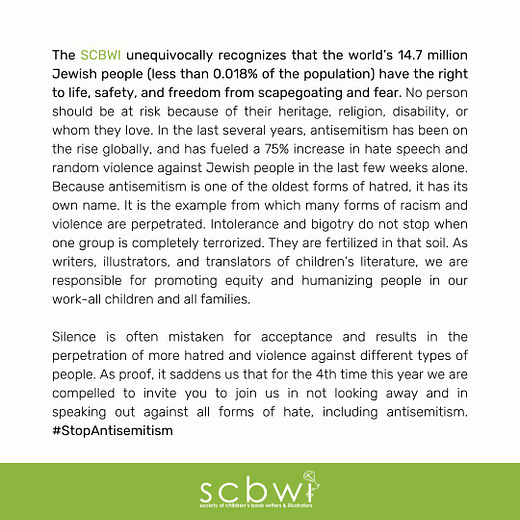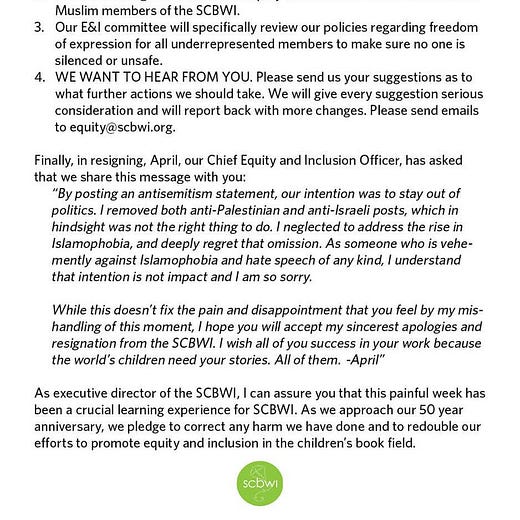E-Pluribus | June 29, 2021
The mess that is anti-CRT legislation, Amazon Studios' "Inclusion Playbook," and Dungeons and Dragons under the woke microscope.
A round up of the latest and best writing and musings on the rise of illiberalism in the public discourse:
Jeffrey Sachs: Laws Aimed at Banning Critical Race Theory in K-12 Schools Are a Poorly Written, Misguided Mess
The intentions may be good, but Jeffrey Sachs says the devil is in the details of much of the new anti-CRT (Critical Race Theory) legislation popping up in states around the country. Rather than simply attempting to regulate advocacy of controversial concepts, these laws often overstep to literally prevent teaching about the concepts. Sachs says this combination of vague language and steep penalties will have a chilling effect on teachers that is antithetical to our nation’s educational principles.
The problems here are obvious. One of the forbidden concepts is the idea that “one race or sex is inherently superior to another race or sex.” Banning that sounds reasonable enough, right? Now suppose a social studies teacher in Houston wants to assign Andrew Stephens’ 1861 “Cornerstone Speech.” It is a watershed address in American history and the clearest articulation of the Confederate position. It is also a speech built around the idea that black people are inferior to white people. What is that teacher supposed to do? And given the sensitivities of students, their parents, local politicians, and activists, what must the teacher be willing to risk?
It’s not hard to see what went wrong. Legislators in these states want to ban teachers from assigning antiracist gurus like Ibram Kendi and Robin DiAngelo. They want topics like “white privilege” out of the classroom, no matter how objectively discussed. Unfortunately, they’ve drafted bills so broad and clumsily written that entire historical eras and swathes of contemporary events would be barred from discussion.
And these are just the ones that are already law. Similar bills are under consideration in Kentucky, Arizona, Missouri, Pennsylvania, and Ohio. Arizona’s bill is especially perverse, threatening to levy a $5,000 fine on any teacher who fails to “discuss controversial issues of public policy or social affairs…from diverse and contending perspectives without giving deference to any one perspective.” Language this vague, paired with fines this steep, will have a predictable consequence: self-censorship.
Read it all here.
Bari Weiss: Amazon's Woke Smokescreen
For her latest piece, Bari Weiss braved the rabbit hole that is Amazon Studios’ “Inclusion Playbook.” Beyond the strange obsession with vocabulary (amputation as “acquired limb difference,” for example,) Weiss says the more insidious consequence is disguising the lack of real world solutions for the problems supposedly being addressed.
By now, this is a familiar story: Amazon is turning the making of TV and film into the same woke numbers game played at every other elite institution. (Exhibit A: Sixty-eight percent of the students admitted to Princeton’s class of 2025 self-identify as “people of color.”)
I decided to read through Amazon Studios’ Inclusion Playbook, designed “to help disrupt the biases that occur across the lifecycle of a series or movie, from the first inkling of a concept to viewers streaming the content on Prime Video.” The playbook directed me to a factsheet that promised to help improve my familiarity with all things diverse and inclusive.
There I encountered entries on things like: acquired limb difference (otherwise known as “amputation”). There’s an entry on mean girls, which, I learned, was a “stereotype of girls and young women characterizing them as socially aggressive and unkind” —characterizations that, apparently, not only “enforce the bad behavior” but “fail to address the larger social issues girls and women face like insecurity, lack of confidence, and pressure to fit the ‘feminine beauty ideal.’” Someone please relay that to Tina Fey.
[…]
Moving right along, the Inclusion Playbook taught me that the Arabic word jihad means to “strive and struggle for God,” and is a term that describes “personal betterment.” Sharia, we are told, literally means “the clear, well-trodden path to water.”
I also learned about the Yazidis, who are victims of the apparently non-violent jihad waged by the Arab League (also covered in this document!). Do I even need to tell you that there is no mention of Israel or of Jews?
The playbook explains that “the work of diversity, equity, and inclusion requires all of us to disrupt those biases, and the longstanding customs and practices in the industry, in order to achieve real, lasting change. This work is not easy to do, but don’t worry, we’re in this together.”
[…]
As Newsweek editor Batya Ungar-Sargon has noted: wokeness is, almost always, a smokescreen. By focusing the attention and energy of the rich and powerful on say, whether using the word Latinx is preferable to Hispanic, we let them off the hook for actually doing something about the fact that Latinos remain more than twice as likely to live below the poverty line as whites and Asians.
Read the whole thing.
Phillip Nieto: Dungeons and Dragons goes woke
If Dr. Seuss is susceptible to reevaluation according to current cultural trends and norms, then could Dungeons and Dragons be far behind? As the role-playing fantasy game with a history of controversy nears its 50th birthday, Phillip Nieto considers some of the changes being made and whether or not they are much ado about nothing, if indeed, given the limited impact, there is any ado at all.
Accusations of racism have long haunted the fantasy realm, dating back to the days of Lord of the Rings author J.R.R. Tolkien. Critics claim Tolkien’s physiology of orcs as barbaric and murderous creatures was designed to reflect people of color, primarily blacks, negatively. The same thoughts made their way to the doorsteps of D&D. In June 2020, as racial riots upended the country following the death of George Floyd, D&D’s publisher Wizard of the Coast released a statement entitled ‘Diversity and Dungeons & Dragons.’ The company denounced D&D’s alleged history of racism stemming from its characterization of orcs and drow races (also known as ‘dark elves’).
‘Throughout the 50-year history of D&D, some of the peoples in the game — orcs and drow being two of the prime examples — have been characterized as monstrous and evil, using descriptions that are painfully reminiscent of how real-world ethnic groups have been and continue to be denigrated,’ the statement reads. ‘That’s just not right, and it’s not something we believe in. Despite our conscious efforts to the contrary, we have allowed some of those old descriptions to reappear in the game. We recognize that to live our values, we have to do an even better job in handling these issues. If we make mistakes, our priority is to make things right.’ The company vowed to offer new descriptions and rewrite the rules for races in future guidebooks.
[…]
‘The move indicates that they are turning the setting into a sort of milquetoast, politically correct setting free of conflict,’ conservative writer Ian Miles Cheong told The Spectator. Cheong himself started playing D&D as a child in the late Eighties with his mother.
‘They’re stripping it of all character by re-characterizing the orcs and drow — two complex, yet canonically evil cultures (or races, per D&D’s original definition) — into approximations of real-world cultures in some ill-conceived move to “decolonialize” Dungeons & Dragons.’
[…]
‘These changes have a trickle-down effect,’ he said. ‘While players are free to ignore the rules and recommendations provided Wizards of the Coast, the guidance they’re provided in the Player’s Handbook and Monster Manual will color the experiences players can, and will have in the future — assuming they don’t lose interest in the setting altogether and move on to a less restrictive setting like Pathfinder.’
Senior editor at Reason Robby Soave, who The Spectator has learned is a sought-after player in the Beltway’s D&D circles, is more ambivalent.
‘Some of these changes don’t really bother me,’ Soave said. ‘Wizards of the Coast speaks of portraying orcs and the drow in a less negative light, for instance. I think one of the most fun things about D&D is that the dungeon master and the player can put their own spin on familiar fantasy archetypes. Encouraging players to further subvert the norms of good and evil, and which races belong to what categories, is all fine by me.’
Read it all.
Around Twitter
There may be some lessons to be learned in a recent backlash-inspired firing. Here are two responses, plus the beginning of a thread about the initial incident:
Glenn Greenwald on the double-edged sword that is the internet:
What anti-racist teaching isn’t:
Finally, Peter Boghossian with a morose though not necessarily inaccurate take on apologies:










